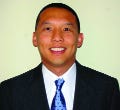McClellan’s Successor Faces a Host of Device-Related Issues
November 1, 2006
NEWS TRENDS
|
Leslie Norwalk has been chosen to serve as acting CMS administrator, effective October 15. |
The next CMS administrator has some significant device issues to address. A lot of attention has been given to Medicare's prescription drug plan, but high-priority device-related issues, from reimbursement to gainsharing, still face CMS.
Congressional Quarterly reported on September 25, 2006, that deputy administrator Leslie Norwalk would serve as acting CMS administrator, effective October 15. Herb Kuhn, director of the Center for Medicare Management at CMS, will become acting CMS deputy administrator. And industry will likely expect a lot from them.
“I think the device industry is probably most interested in getting greater clarity and transparency with regard to reimbursement and payment of procedures,” says Jori Frahler, director of federal affairs at the Medical Device Manufacturers Association (Washington, DC). She cites the guidance document released a few months ago on the Coverage with Evidence Development Initiative as an example.
Norwalk “should understand and act with foresight on evidence requirements for Medicare coverage of new technology and on payment-level determinations,” says Clifford Goodman, vice president of The Lewin Group (Falls Church, VA). CMS's management of this issue could have an immediate effect on investment in emerging technology, pace of innovation, clinical trial design, adoption into practice, and access for Medicare beneficiaries.
AdvaMed says it is looking forward to working with Norwalk on important policies, such as addressing inpatient hospital payments as CMS phases in cost-based weights. AdvaMed hopes she “considers related policy issues and the implementation of gainsharing demonstration projects and safeguards,” says Ann-Marie Lynch, AdvaMed's executive vice president for healthcare systems. Such issues would help ensure improvements in quality and ensuring patient access to appropriate care. Other priorities, she says, are “the administration's ‘transparency' initiatives and improvements in reimbursement for diagnostic tests that better target patient care by early diagnosis and detection.”
The increasingly interconnected relationship between CMS, FDA, the National Institutes of Health, and other agencies will affect national research agendas. It will also affect validation and adoption of healthcare technology and population health, according to Goodman.
Norwalk must also continue McClellan's efforts to promote health information technology, says Goodman. “For medical technology, this information capacity can enable earlier coverage of technologies in exchange for more-systematic postmarket data collection and monitoring, with more-robust real-world findings for modifying clinical care, payment policies, and further innovation.”
The gainsharing debate has been a hot topic during the past year. Frahler is concerned with the demonstration project that CMS announced in early September. Efforts to standardize devices in hospitals would kill innovation, she says. “So far, the Office of Inspector General [OIG] has approved of six device contract gainsharing-type demos, and that's problematic for industry.”
|
Norwalk will oversee CMS during a time of evolution, says Stephen Chan. |
Another area of controversy has been the final rule on the inpatient prospective payment system (IPPS). Although it was released in August, Norwalk will still have to deal with its implementation, because some of its kinks have yet to be ironed out.
“McClellan's successor will be taking the reins at a time of great evolution for Medicare,” says Stephen Chan, director at Boston Healthcare (Washington, DC). “The recent changes to the program are among the most dramatic since the inception of the Medicare system. Specifically, the implementation of the severity-of-illness diagnosis-related groups is still unsettled. Its ultimate design may have an effect on the medical device and hospital communities.” To avoid disrupting patient care, Norwalk must work closely with device companies and hospitals as the program moves forward.
Norwalk will also need to monitor physicians and hospitals in their reporting of Medicare costs. This is necessary to ensure that the IPPS transition from charge-based weights to cost-based weights is smooth and accurate to avoid over- or underreimbursement. Earlier this year, OIG reported that Medicare “was potentially overpaying, because hospitals weren't accurately reporting the rebates they received from group purchasing organizations at the end of the year,” says Frahler.
Many challenges lie ahead. There is no question that Norwalk's plate will be full. The key will be to achieve balance when working with other agencies, promoting the adoption of innovative devices, and maintaining transparency of reimbursement procedures.
Copyright ©2006 Medical Device & Diagnostic Industry
About the Author(s)
You May Also Like




